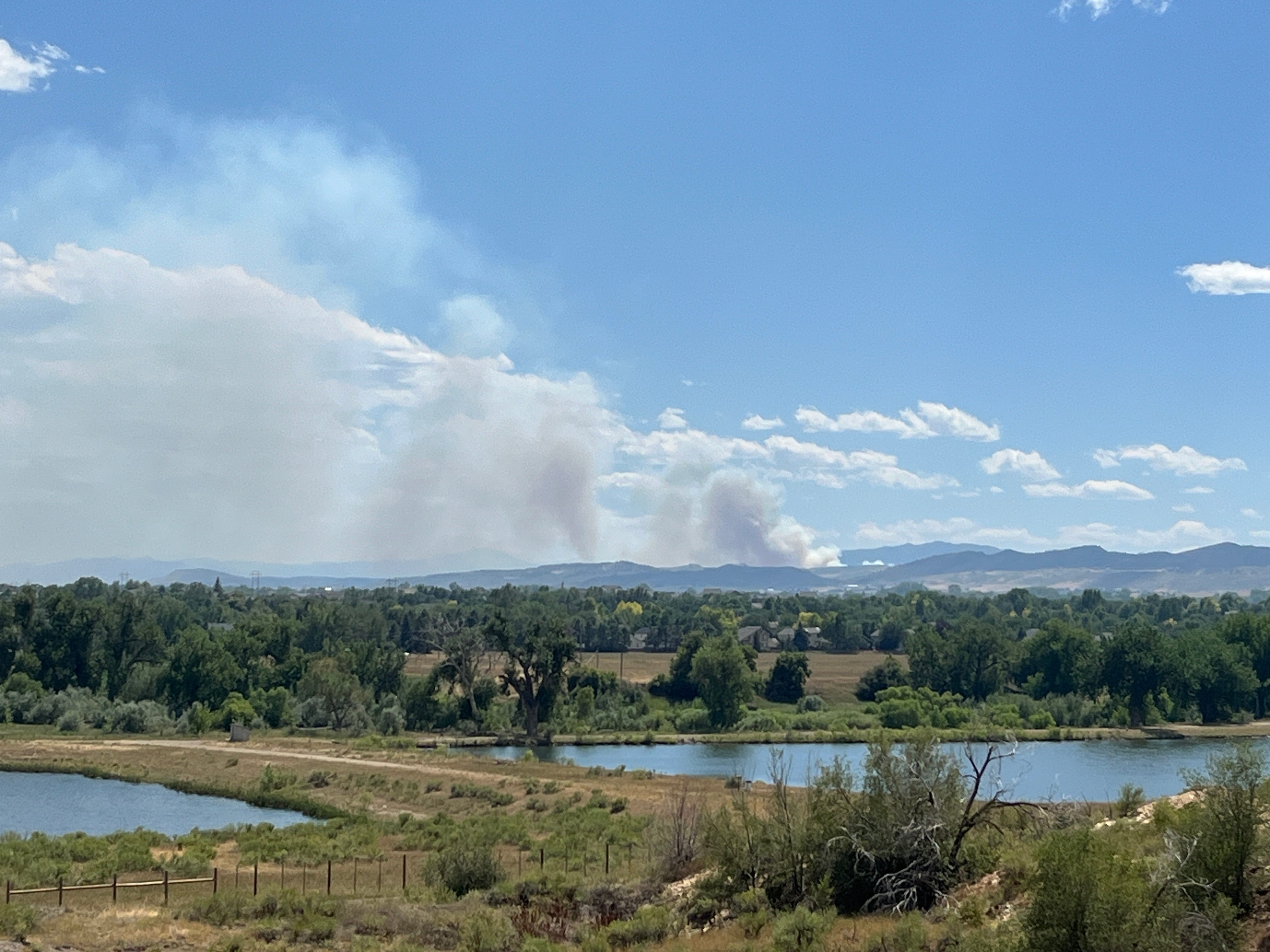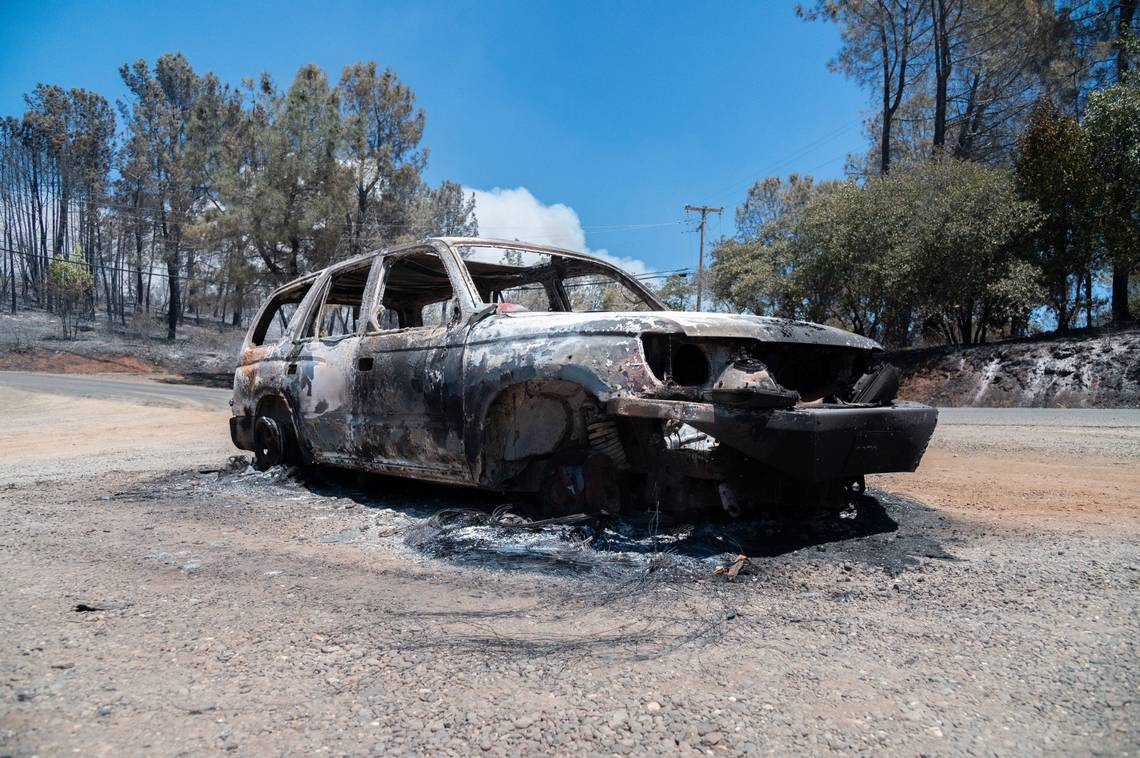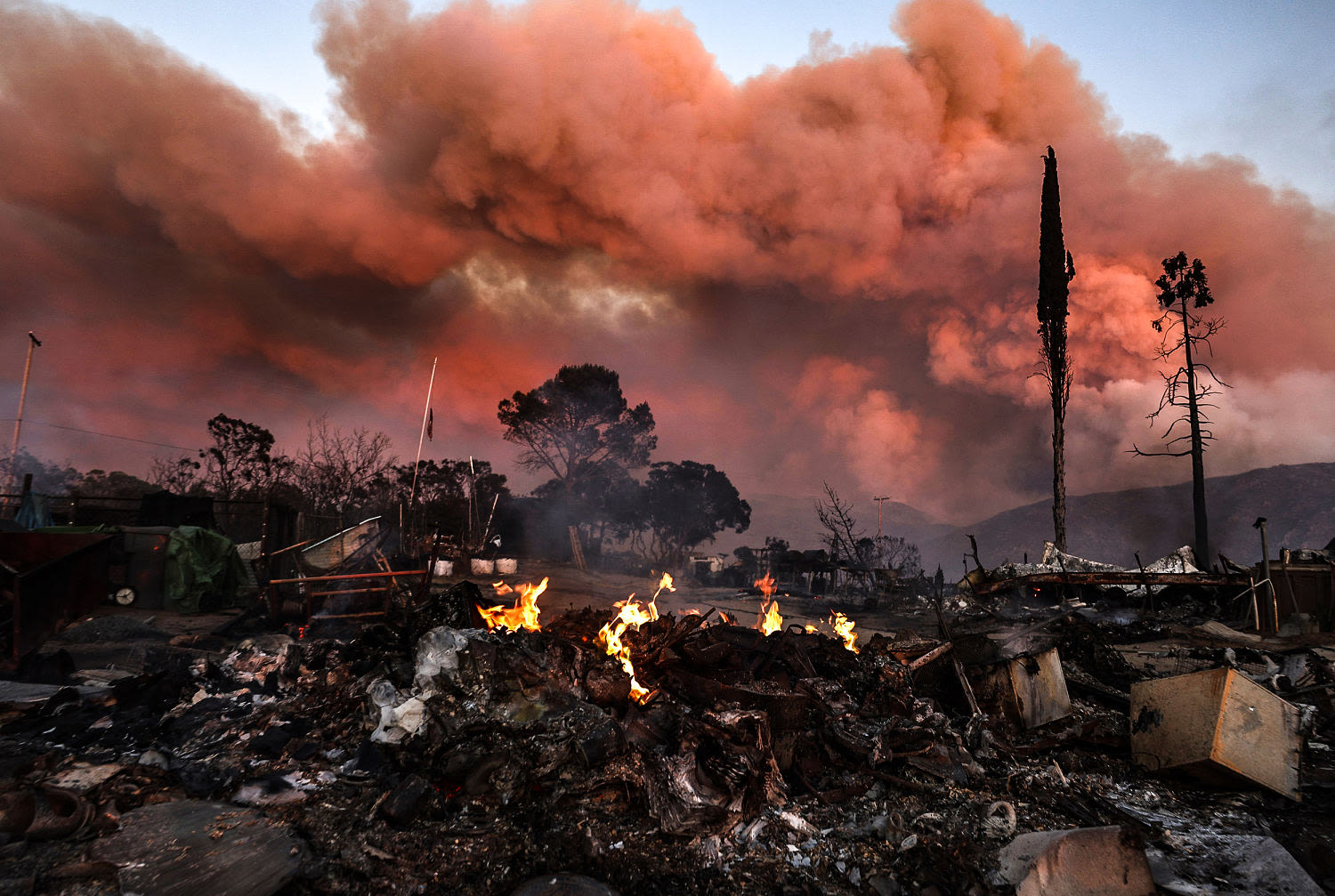Search results
- DictionaryFire/ˈfī(ə)r/
noun
- 1. combustion or burning, in which substances combine chemically with oxygen from the air and typically give out bright light, heat, and smoke: "his house was destroyed by fire"
- 2. a burning sensation in the body: "the whiskey lit a fire in the back of his throat"
verb
- 1. discharge a gun or other weapon in order to explosively propel (a bullet or projectile): "he fired a shot at the retreating prisoners"
- 2. dismiss (an employee) from a job: informal "having to fire men who've been with me for years"
News about Lyons, Stone Canyon Fire, mandatory evacuation order
News about Park Fire, California, CAL FIRE
News about Nixon fire, Aguanga, Riverside County
Also in the news
Typically, fire comes from a chemical reaction between oxygen in the atmosphere and some sort of fuel (wood or gasoline, for example). Of course, wood and gasoline don't spontaneously catch on fire just because they're surrounded by oxygen.
Fire is the rapid oxidation of a material (the fuel) in the exothermic chemical process of combustion, releasing heat, light, and various reaction products. [1] [a] At a certain point in the combustion reaction, called the ignition point, flames are produced. The flame is the visible portion of the fire.
Fire is the visible effect of the process of combustion – a special type of chemical reaction. It occurs between oxygen in the air and some sort of fuel. The products from the chemical reaction are completely different from the starting material.
Fire is a chemical reaction that converts a fuel and oxygen into carbon dioxide and water. It is an exothermic reaction, in other words, one that produces heat.
In this episode we explain why fire is red, gas flames are blue, and why you're too cool to glow. Music by Nathaniel Schroeder youtube: http://bit.ly/pakJLE myspace: http://mysp.ac/qtmZQj...
Jul 20, 1998 · Fire, rapid burning of combustible material with the evolution of heat and usually accompanied by flame. It is one of the human race’s essential tools, control of which helped start it on the path toward civilization. The original source of fire undoubtedly was lightning, and such fortuitously.
Aug 3, 2015 · This week, learn about the beautiful science happening inside a flame! Michael Faraday's Christmas lectures on candle chemistry: http://blogs.scientificamerican.com/c......
Apr 21, 2022 · The ancient Greeks recognised that fire doesn’t have the same physical properties as earth, air or water, but do we know much more these days? Let’s look at the thorny question – what exactly is fire?
Jan 3, 2013 · Fire is a chemical reaction that releases light and heat. The display usually marks the meeting of a combustible material and oxygen, although other chemicals can spark flames as...
Mar 14, 2014 · In other words, when something burns, there’s no un-burning it. Fire also is a glowing reminder of the oxygen that pervades our world. Any flame requires three ingredients: oxygen, fuel and heat. Lacking even one, a fire won’t burn. As an ingredient of air, oxygen is usually the easiest to find.





